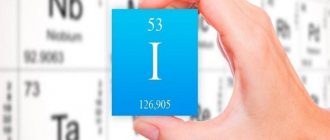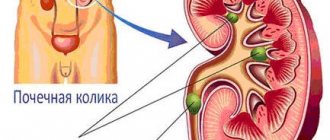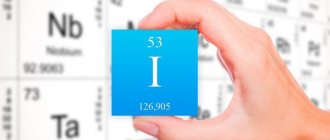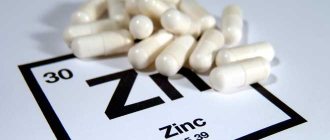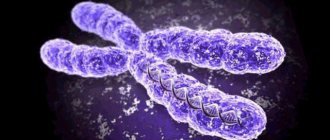The problem of iodine deficiency in the body is global. A third of all people in the world are at risk of iodine deficiency in their bodies.
At maximum risk are:
- Pregnant women.
- People who live in countries where the soil contains very little iodine. These are the countries of South Asia, Southeast Asia, New Zealand and European countries.
- People who do not use iodized salt.
- Vegetarians and vegans.
Iodine is one of the important minerals for a woman’s body. This macroelement is a building material for thyroid hormones, and, consequently, for its proper functioning.
Thyroid hormones help control cell growth, repair damaged cells, and support a healthy metabolism.
Lack of iodine can cause unpleasant and even serious symptoms. Among them: swelling of the neck, worsening pregnancy conditions, weight gain and learning difficulties.
Signs of iodine deficiency in the body are very similar to symptoms of hypothyroidism or low levels of the thyroid hormones TSH, T3 and T4. Because iodine is used to make thyroid hormones, iodine deficiency means that thyroid hormone levels will be low, leading to hypothyroidism.
Iodine is especially important for women's health. The danger of a lack of this microelement affects the function of the thyroid gland, which provides women with beautiful smooth skin, sparkle in the eyes, and strong thick hair. In addition, a woman’s entire hormonal system is tied to the functions of the thyroid gland.
The information in this article is based on serious scientific research from the US National Academy of Medicine, which you can read for yourself here.
How to determine iodine deficiency in the body at home
Iodine deficiency is a common disorder of non-infectious origin. A lack of microelement in the body leads to insufficient production of thyroid hormones. This is dangerous due to endocrine diseases, mental disorders, and memory loss.
To ensure that there is no iodine deficiency, a simple rapid test is performed:
- Test No. 1. An iodine mesh is drawn on the outer surface of the thigh 15-20 minutes before bedtime. If there is no trace left of it after waking up, this indicates a deficiency state.
- Test No. 2. An iodine solution is applied to the inner thigh. If the mesh disappears within 3-4 hours, this indicates a clear lack of microelement in the body.
- Test No. 3. 20 minutes before bedtime, 3 iodine strips 5 cm thick are drawn on the forearm: the first is translucent, the second is distinct, the third is the brightest. If after waking up only the last bright stripe remains on the body, you need to consult a doctor.
Before checking the level of a microelement in the body, you need to make sure that there is no damage to the skin. It is undesirable to apply an aqueous-alcohol solution of iodine to areas with open wounds and ulcerations.
Anemia
Due to a decrease in metabolic activity, iodine deficiency is often accompanied by iron deficiency anemia, a disease associated with insufficiency of iron in the blood. In this case, anemia is usually of an unexpressed nature and, as a rule, manifests itself already in the mature stage of hypothyroidism. The main symptoms of iron deficiency anemia are tinnitus, dizziness, weakness, and pallor.
Source: depositphotos.com
How to Clinically Confirm Iodine Deficiency
If a home test indicates iodine deficiency, you need to do an analysis of the level of thyroid-stimulating hormones - T3 and T4. For laboratory testing, blood is taken from the ulnar vein. Low levels of tri- and tetraiodothyronine indicate a lack of iodine.
Normal values of thyroid hormones for women:
- T3 – 2.6-5.7 pmol/l;
- T4 (thyroxine) – 10-23 pmol/l.
To exclude false positive and false negative results, you need to prepare for the analysis:
- stop taking contraceptives and other hormonal medications within 30 days;
- refuse vitamins and medications that contain iodine;
- do not drink alcoholic beverages for 3-5 days.
The test is taken in the morning on an empty stomach. It is recommended to calm down 30 minutes before blood sampling and not do physical work.
Bad mood and depression
Disturbances in the functioning of the brain that have not passed without a trace serve as a starting point for the development of psychological problems. The emotional background deteriorates, apathy, passivity, dejection, and a negative view of events appear, which in 5–12% of cases turn into severe depression. A distinctive sign of this condition with iodine deficiency is weakness of will, the absence of any desire to improve one’s condition, which the patient’s relatives should know about. It is necessary to help him and encourage him to seek treatment.
Source: depositphotos.com
Preventing iodine deficiency is always easier than treating it. The average daily iodine requirement for an adult is 120-150 mcg. It can be obtained mainly from sea fish, algae, fish oil, iodized salt, meat, fruit and dairy products.
Video from YouTube on the topic of the article:
Main symptoms of iodine deficiency
A lack of iodine is indicated by dozens of symptoms, which are divided into several groups:
- immunodeficient;
- cardiological;
- gynecological;
- emotional;
- intellectual;
- edematous.
If 3 or more signs of iodine deficiency are detected, a woman should make an appointment with an endocrinologist. Ignoring the problem is fraught with serious disorders in the body, diseases of the thyroid gland.
Anemia
Anemia, or anemia, is a pathological condition associated with a decrease in the concentration of hemoglobin and the number of red blood cells in the blood. It occurs due to metabolic disorders caused by a lack of iodine in the body. Anemia is indicated by:
- pallor of the skin and mucous membranes;
- frequent dizziness;
- fast fatiguability;
- sleep disturbance;
- noise in ears.
Signs of iodine deficiency and anemia are symptoms of primary hypothyroidism - a disease of the thyroid gland when the level of thyroid hormones is reduced.
Anemia during pregnancy is dangerous due to oxygen deprivation of the fetus and premature birth.
Fatigue and decreased performance
Lack of microelement leads to insufficient synthesis of iodine-containing hormones. They affect the functioning of the entire body. Indirect manifestations of iodine deficiency are reduced performance and constant fatigue. They do not disappear after sleep or rest.
Symptoms of iodine deficiency:
- prostration;
- chronic fatigue;
- drowsiness.
Decreased performance occurs in 99% of patients suffering from iodine deficiency. If left untreated, symptoms increase and overall health worsens.
Immunity instability
With a lack of iodine, the functions of the immune and hematopoietic systems are disrupted. Because of this, the body's resistance to infections is reduced. Iodine deficiency is indicated by:
- frequent colds;
- relapses of chronic infections;
- rapid progression of fungal diseases;
- slow healing of skin lesions.
Taking vitamin-mineral complexes does not stimulate the immune system. To cope with secondary immunodeficiency, you need to eliminate the root cause - iodine deficiency.
Edema
With iodine deficiency, the synthesis of energy-dependent enzymes is disrupted. They support the normal functioning of cells. With a chronic deficiency of a microelement in the body, myxedema occurs - severe swelling of the skin and mucous membranes, caused by a decrease in the level of T3 and T4.
Myxedema is manifested by the following symptoms:
- puffiness of the face;
- bags under the eyes;
- swelling of the limbs;
- hearing loss due to swelling of the ear canal;
- hoarseness due to swelling of the vocal cords.
Iodine deficiency is especially dangerous for older women.
Exacerbation of infections, hypothermia with myxedema are fraught with a coma. If iodine enters the body in insufficient quantities, the water balance is disturbed. Water is retained in the body, and vascular permeability increases. Therefore, intercellular fluid accumulates under the skin. This is how swelling appears.
Menstrual irregularities
Thyroid insufficiency in women leads to disruption of neuroendocrine interaction with the organs of the reproductive system. A slight decrease in T3 and T4 negatively affects ovarian function. Iodine deficiency leads to hypothyroidism, which reduces the synthesis of female sex hormones.
Insufficient intake of iodine into the female body is indicated by:
- heavy bleeding during menstruation;
- menstrual irregularities;
- dysmenorrhea;
- infertility;
- loss of ovarian function;
- premature menopause.
Girls planning pregnancy should carefully monitor the level of iodine in the body. Iodine deficiency diseases during gestation are dangerous for disruption of intrauterine development of the fetus, miscarriage, premature birth and stillbirth.
Overweight and obesity
Sudden weight gain indicates hypothyroidism. A lack of iodine-containing hormones is accompanied by a slowdown in metabolism and accumulation of fluid in the body. If iodine is not supplied with food, biochemical reactions in cells are disrupted. Therefore, the connective tissue becomes susceptible to intercellular fluid.
Iodine deficiency hypothyroidism is accompanied by:
- swelling of the body;
- thickening of the skin;
- weight gain;
- swelling of the lips.
Due to severe swelling of the internal organs, women's voices become rougher, nasal breathing becomes difficult, and shortness of breath occurs. Such symptoms are a serious reason to consult a doctor.
Arterial hypotension
The heart and blood vessels react to a low intake of iodine into the body. Hypofunction of the thyroid gland is accompanied by a decrease in thyroxine and triiodothyronine. Hormones maintain blood pressure, so their deficiency leads to hypotension.
Low blood pressure, tachycardia, congestion in the limbs are signs of iodine deficiency. T3 and T4 increase the need for oxygen in body tissues. If their level decreases, the myocardium experiences oxygen starvation. Therefore, the strength of heart contractions decreases, and the pulse rate increases.
Decreased intellectual abilities
Lack of iodine is only dangerous in children, but also in adults due to a decrease in mental abilities. Iodine-containing hormones support mental activity, stimulate mental associations and brain function. If there are not enough of them, mental activity decreases sharply.
If there is not enough iodine in the body, this is indicated by:
- memory impairment;
- poor performance at school;
- violation of the logic of thinking;
- slow speech, etc.
As a result of metabolic deterioration, the nutrition of brain tissue is disrupted. Therefore, women stop engaging in creative work and cannot cope with complex tasks.
Emotional lability and depression
If a lack of iodine is accompanied by disruptions in the functioning of the central nervous system, this affects mental activity. Iodine deficiency pathologies in women manifest themselves:
- irritability;
- apathy;
- depressive states;
- sudden change in mood;
- hysterical;
- detachment.
Mental signs of iodine deficiency in the body appear in 15-18% of patients. The lower the content of T3 and T4 in the blood, the brighter the symptoms.
Dry skin and hair loss
More than 20% of iodine accumulates in skin appendages - sweat and sebaceous glands. Its lack leads to disruption of the production of sweat and sebum. Because of this, the hydrolipid mantle of the skin is destroyed. The deterioration of her condition is indicated by:
- peeling;
- roughness;
- small cracks;
- thinning.
Dehydration is dangerous due to a decrease in local immunity and the penetration of pathogenic bacteria, fungi, and viruses into the skin. Hair often begins to fall out.
Gastrointestinal dysfunction
A lack of iodine and thyroid hormones in the body is accompanied by disruptions in the gastrointestinal tract. Disturbances in protein and lipid metabolism lead to problems with the liver, insufficient production of gastric juice and bile. Dysfunction of the digestive system is manifested by:
- bloating;
- epigastric pain;
- dyspepsia;
- frequent constipation;
- intestinal colic.
If there is not enough iodine in the body, this inevitably leads to digestive problems. Symptoms of indigestion occur in 93% of patients with hypothyroidism.
Weakness of immunity
Weakness of the immune system manifests itself in the form of frequent and recurrent colds, viral, parasitic, fungal diseases, and slow wound healing. The use of general measures to strengthen the body (establishing a daily routine, hardening, taking immunomodulators) usually does not help much. In this case, it is possible to get rid of immunodeficiency only by eliminating its root cause by taking products containing iodine (Iodomarin, potassium iodide, etc.) or thyroid medications.
Source: depositphotos.com
How to replenish iodine deficiency in the body
If there is a lack of iodine in the female body, you should consult an endocrinologist. Depending on the degree of iodine deficiency, he will prescribe medication and diet therapy.
Nutritional Features
To compensate for the lack of vitamins and microelements, iodine-containing foods are included in the diet:
- fruits – persimmons, plums, currants;
- vegetables - asparagus, green peas, spinach, radish;
- seafood - squid, red fish, seaweed;
- nuts – pine, walnuts.
Nutritionists advise replacing regular salt with iodized salt and consuming more milk and fermented milk products.
The daily requirement for iodine for women over 15 years of age is 0.15 mg, and for pregnant women – 0.2-0.3 mg.
Medication support
Iodine deficiency is eliminated with fortified dietary supplements, which include iodine:
- Yod-Normil;
- Iodine-Active;
- Antistrumin;
- Iodine balance;
- BIMmunal 9;
- Iodomarin;
- Yodovital;
- Potassium iodide.
Women with hypothyroidism are prescribed synthetic analogues of thyroid hormones with levothyroxine - L-thyroxine, Eutirox, Bagotirox, L-Tyrok, etc. The duration of treatment is determined by the degree of endocrine disorders in the body.
Hypotension
Impaired functioning of the cardiovascular system is a sign of hypothyroidism developed against the background of iodine deficiency, and to a significant extent. Due to circulatory disorders, people with hypothyroidism may experience a complication in the form of hypotension - a decrease in blood pressure. This condition is characterized by weakness immediately upon waking, dizziness, headache, shortness of breath, rapid heartbeat, sweating and fatigue. It is important to remember that hypotension often accompanies other endocrine diseases and is the result of stress, uncontrolled use of medications, and a sedentary lifestyle, having nothing to do with iodine deficiency.
Source: depositphotos.com
Why is iodine deficiency dangerous?
Lack of iodine is fraught with thyroid pathologies - thyroid dysfunction. Delayed treatment leads to the following complications:
- speech disorder;
- deafness;
- atherosclerosis;
- mastopathy;
- infertility;
- cardiac ischemia;
- biliary dyskinesia.
Iodine deficiency is very dangerous for the fetus. Microelement deficiency in the mother's body complicates the course of pregnancy. Possible consequences include:
- abnormal brain development in the fetus;
- perinatal encephalopathy (brain damage);
- cretinism;
- deaf-mute;
- neonatal goiter.
Iodine deficiency at the beginning of pregnancy is dangerous due to miscarriage, placental insufficiency, and fetal hypoxia.
Menstrual irregularities
An unstable menstrual cycle is a symptom of the initial stage of iodine deficiency, since the lack of iodine directly affects the functioning of the hormonal system. The state of iodine deficiency in women can be fraught with infertility and premature onset of menopause. Lack of iodine is no less dangerous during pregnancy: the lack of a vital element can have a detrimental effect on the intrauterine development of the fetus and lead to spontaneous abortion, stillbirth, and congenital pathologies.
Source: depositphotos.com
Prevention of iodine deficiency
To prevent endocrine diseases, it is necessary to ensure that the microelement enters the body in sufficient quantities. To do this you should:
- eat a varied diet;
- include sea fish and seaweed in the menu;
- Be examined by an endocrinologist once a year;
- take iodine supplements;
- to refuse from bad habits.
Before planning pregnancy, women need to determine their thyroid status. For symptoms of iodine deficiency, 3-6 months before conception, take dietary supplements, for example, Iodomarin. Compliance with preventive measures prevents dangerous diseases - hypothyroidism, myxedema, nodular goiter.
Edema
Swelling is an obvious symptom of iodine deficiency. The most common location of swelling in this condition is under the eyes; swelling of the legs and arms can also be observed. Moreover, using diuretics to eliminate edema will not only be useless, but also dangerous: beneficial substances, including microelements, are washed out of the body, and the water-salt balance is disrupted.
Source: depositphotos.com
Decrease in intelligence
Problems in the functioning of the brain, manifested in the form of decreased attention, ability to intellectual activity, memory deterioration, can also signal a lack of iodine in the body. Iodine is also called the “microelement of intelligence.” As a result of a weakening of the metabolism of brain cells, a person remembers dates, events, and faces worse, has difficulty solving complex problems, and stops being creative. If iodine deficiency is not eliminated at this stage, the next stage is deep depression.
